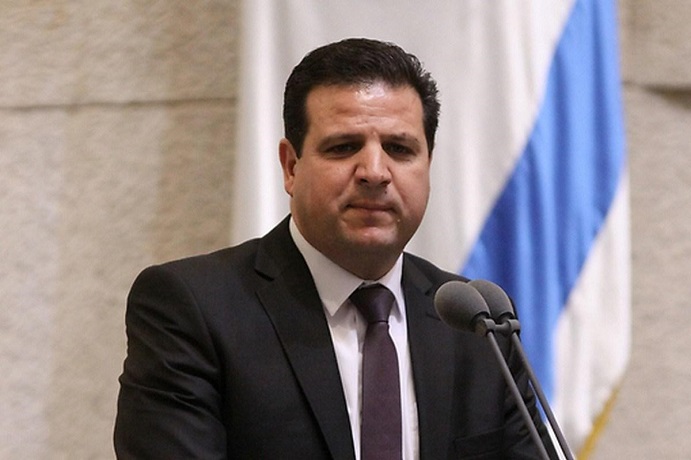Middle East Monitor / September 18, 2019
The Joint List, an alliance of parties consisting of prominent Palestinian citizens, has celebrated a high turnout of voters in yesterday’s General Election in Israel. The leader of the bloc, Ayman Odeh, also hailed the fact that the incumbent Prime Minister Benjamin Netanyahu has just a small chance of retaining his position, and pointed out that he is unlikely to be able to form a government.
“We feel good that [Netanyahu] cannot form a government,” Odeh told a crowd of activists and journalists at the headquarters of an Arabic-language radio station in Nazareth last night. “We also feel good that the Otzma Yehudit party failed to enter the Knesset.” His reference was to one of the far-right parties regarded as even more anti-Palestinian than the others.
The rejoicing of the Joint List, which is emerging as the third largest party in the Israeli parliament, the Knesset, came after Netanyahu’s Likud Party failed to win a majority and be in a position to build a coalition to secure his fifth term in office. This has contradicted earlier fears that the results would be the opposite due to low voter turnout in Palestinian-majority towns and areas, along with an increase in far-right rhetoric.
Yousef Jabareen MK, who heads the Joint List’s International Relations Committee, told MEMO that, “The results show a serious increase in the support of the Joint List, which proves that uniting in one list has a positive reaction from our community, which in return appreciated unity and cooperation.” The increase in votes for the bloc benefits the Palestinians and other minorities living in Israel as it empowers their political-representation. “It also boosts our struggle to achieve equality and peace, both in Israel and in the international arena.”
The full election results are due to be published this afternoon, explained Jabareen, and they will not only affect the Palestinian population within the self-declared Jewish state. “They will also block the way for Netanyahu to establish an extreme right-wing government. In fact, many in our community believed that Netanyahu could be defeated and they came to vote in order to be part of this change. In spite of the politics of incitements and hate of Netanyahu, we succeeded to send a message of possible change to our supporters, and to promote the politics of hope.”
The potential toppling of Netanyahu and the right-wing political factions can be, in Jabareen’s view, one step further on the path to gaining rights for Palestinian citizens of Israel, and strengthens the determination to establish a Palestinian state. “We will continue our struggle against discrimination and racism in Israel and for the establishment of Palestinian state on 1967 borders. This solution is the only hope for the region.”
This is the second General Election in Israel within the space of five months, following Netanyahu’s failure to form a governing coalition in April. During his election campaign, he made ever more desperate appeals to his right-wing voter base, vowing to annex the occupied Jordan Valley and impose Israeli sovereignty on swathes of the West Bank, as well as warning that Israel will likely launch another major military offensive against the largely civilian and unarmed Palestinian population of the besieged Gaza Strip.
While many in the Palestinian camp, as well as the centrist and left-wing parties within the Joint List bloc, would prefer to see Netanyahu out of office, there is a great deal of scepticism that it would make a significant difference to the peace process or the chances of ending the Palestine-Israel conflict.













